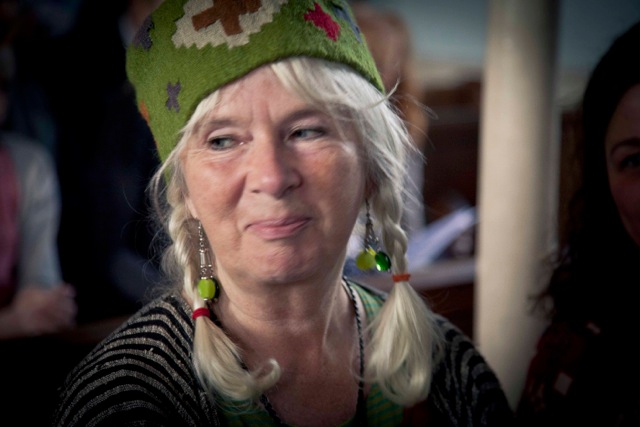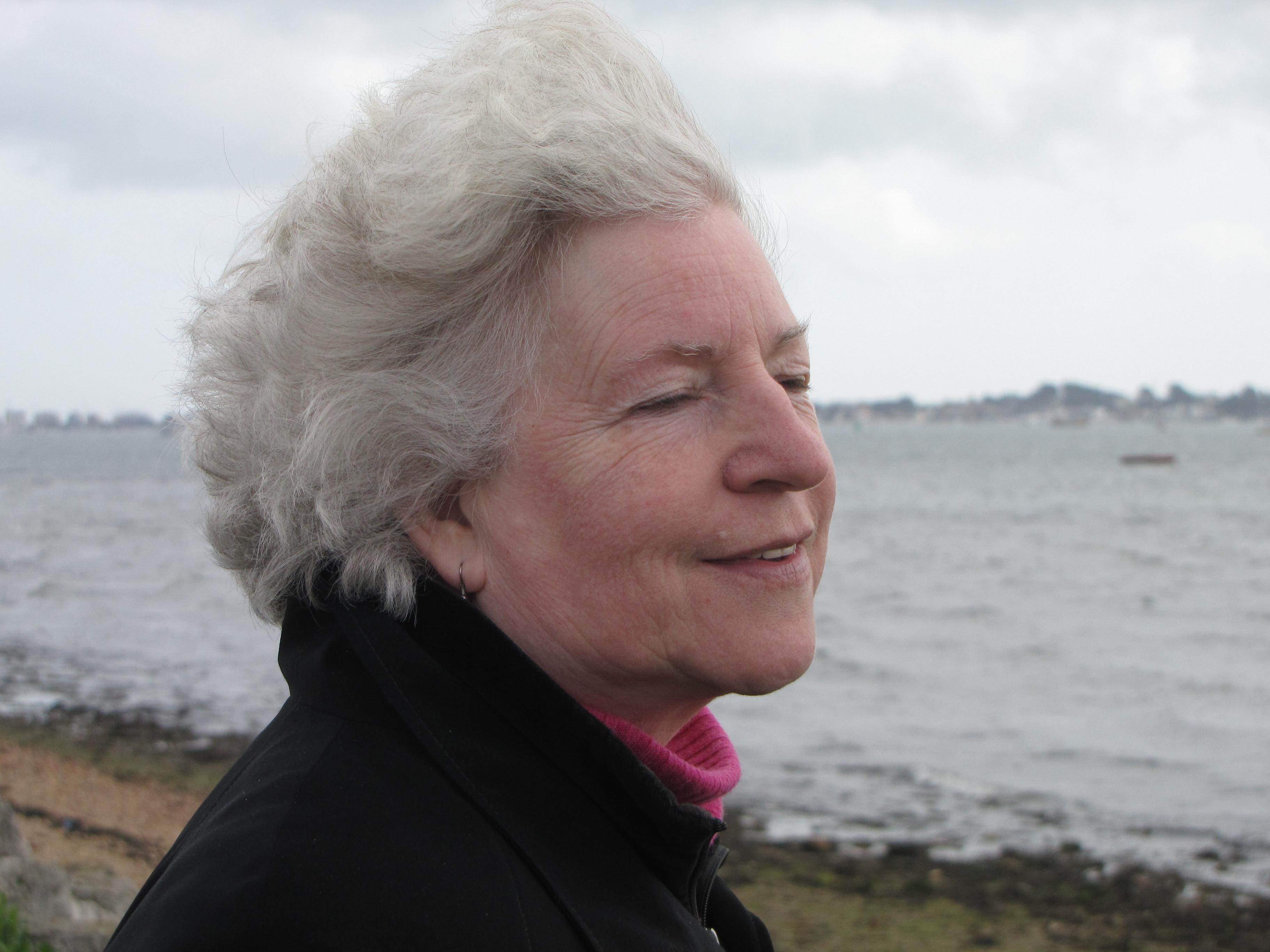ASK & DISCUSS
INDEXWhere does the money go in a microbudget feature?
11 years, 4 months ago - Lyn Webster Wilde
Is there anyone out there who has recently made (or anyone who is making) a microbudget feature who can give me a sense of where the money tends to be spent? I am talking between £200,000 and £300,000. I am not happy about not paying people but can see that I might have to get over that in some cases (like with DOP friend of a certain age who may do it for love) but I am wondering what experiences others have had which might shine a light on this for me.
Luckily, my story has limited locations, mainly in Wales, and a limited number of main characters, but I feel I need very strong actors, which is not going to come cheap. Any advice gratefully accepted.
Only members can post or respond to topics. LOGIN
Not a member of SP? JOIN or FIND OUT MORE
11 years, 4 months ago - Andrew Morgan
200-300k is a good budget (my feature was shot for £40k) - with that kind of money I'd focus on (in order of priority):
1) Talent
2) Sound
3) DoP
4) Crew (for 300k, yes - you pay them)
5) Production values (location, costume etc.)
Work out the cost for the first 4 then adjust number 5 accordingly to suit the remaining budget. Don't forget to budget for rentals, insurance, legal etc. and have some money left over for publicity.
11 years, 4 months ago - John Lubran
Hi Lyn. Lovely to see someone from Mid Wales here. I’m about 25 miles north of you. Your question has reminded me of a project I have had simmering on the back burner for a while too.
The question of the cost of producing films is getting to be increasingly academic; it’s a ‘how long is a piece of string’ conundrum. We see megabuck Hollywood movies flop even after hundreds of millions have been spent and we see low budget features do well both critically and financially.
Whether £200K or £300K is a lot or a little is depends on relativity. It’s always about cutting ones cloth according to its measure. Making a film that exploits resources to best affect is usually better than polishing rubbish by throwing huge money at it. Wales is great for filming stories that need only natural locations that provide few limits to period. The technical demands required for high production quality have become increasingly cheaper to achieve and there’s no end in sight as to just how cheap and user friendly the technical options are going to become, even for photo real CGI; it seems almost every month some new innovation is launched. It’s all about human talent now. The need to attach big names is relative to the cost of production. If you spend millions the current thinking is that one needs a big name or two, or three because the distribution has to produce enough earnings to pay for it. If the production has a ‘low budget’ though the bottom line return on investment is low enough to allow one to discover superb talent, for both sides of the camera, from that huge pool of talent who’ve not yet become famous.
Collaborative and co-operative models don’t have to mean project leaders losing creative and distributive control. Welsh (Celtic Briton) stories are among the most intriguing and untold because few of them have yet been able to express the inherent treasure trove of revaltionary purity still hidden from contemporary universal cultural/spiritual/philosophical context by a mist of medieval tradition trying to interpret much earlier pre Romano-Greek-Latin ancient lore.
Wishing all the very best for your project Lyn
11 years, 4 months ago - Paddy Robinson-Griffin
I grew up in Wales, always so pleased to see work going on there.
The problem you have is that it's hard not to be lop-sided at that budget point. You're going to need to pay experienced department heads or you'll have a dangerous mess, but you might make up the numbers with students who will be enthusiastic but slow you down through inexperience. Crew will need prep time, too.
'Name' talent can be expensive but more painful than that is the side fees and deals - casting agents want 5-figures, talent may want the same, but then push a load of extra costs onto you (4* hotel room, private dressing room/winnebago, their own makeup/gang, premium meals, dedicated driver, etc) in the rider. Just be aware that say any ATL talent budget may commit you to another 30%-odd in associated costs.
Hires will make a decent dent in that, depending on what you need. LX packages around 4-figures but allow for delivery, etc and consumables. Camera packages similarly. Insurance - 4-figures, legals allow 5 figures. Publicity spend isn't eligible for tax credits, but an EPK/behind -the-scenes is. At this budget point you should be looking at tax credits BTW, just in case you haven't. Don't forget your cashflow will need to cover VAT - every price you're given will be ex-VAT so even though you get it back, you still need to 'find' the cash for 3 months.
Locations are a massive PITA because they need all the studio stuff bringing in - silenced generators, loos, dining bus/space, catering, wet weather provision, dressing and make-up space, production office at a minimum.
For interiors look at shooting in a studio - you can control the whole location, so aren't held to ransom by noisy neighbours/dogs/planes/daylight/nighttime/permits/catering/accommodation/finding toilets/etc. I love studio and hate location.
Budget for prep-time, preproduction, and post-production as well. As soon as you start spending a whole load of costs will appear from nowhere (director wants rain on one shot? £2k right there, plus dealing with the council about roads plus dealing with them about hydrant use plus fees plus extra risk assessments plus xyz...) so allow a hefty contingency as you'll be surprised how many costs just bring other costs and how many deals only cover a part of the solution (director wants a gun, so you need an armourer, there's another £x00/day all for a lazy plot device).
I went to a very candid talk by Simon Channing-Williams before he passed away - he put production down to 'tea, toilets and transport', and there's a lot in that. Rather, get those right or no matter what else you spend, it'll fall apart. 'Tea' includes catering of course.
There's more, lots more, lots lots more. It's all a headache and a balancing act, and impossible to get 'right', only possible to get 'ok'. If you can live with 'ok', you'll muddle through like every other production :-)
11 years, 4 months ago - Lyn Webster Wilde
Hey Guys, thanks so much for your generous and helpful advice. I am just at the beginning of this road, just about to start thinking about schedule/budget etc, but I wanted to get some insight first from those who have travelled the path, so as not to waste time and money on making stupid assumptions or mistakes. I am sure I will still make both, but I am going to print out all your answers and study them carefully. I will let you know how I get on, and will no doubt have some more specific questions to put to you. Thanks again, Lyn
11 years, 4 months ago - Marlom Tander
Yen - loved the line about top sheets in that article. The thing that all Creative's need to understand is that a Top Sheet is derived from the underlying numbers, just like a script synopsis is derived from the completed script.
11 years, 4 months ago - Yen Rickeard
Hi Lyn,
well done in getting a great budget.
Look for film budget templates on the web. There are lots.
here is one of them: http://uscreen.co.uk/uploads/how-to/Film_Budget.pdf but this one neglects insurance and legal fees, which are essential. This will help you find the hidden costs.
I recently made a short film for as little as possible, with the express intention of finding out exactly what you MUST spend money on. (Cost £140 for a 10 min. film. With Zombies, mini crowd scenes and Inspectors spit roasted) Here is the list of essentials
DOP (If with their own equipment saves on equipment hire)
Good Sound Recordist (ditto)
Make-up and costume
good food
good logistics, the right locations close together(work out how when and where with minimum movement and least amount of vehicles)
The right equipment.
Great (if little known) talent - there are a lot of great actors out there.
Insurance (for the short I didn't bother - just did a good health and safety check myself - you will need both!)
It takes all sorts - I love location much more than studio. On location you have the sun, whether direct or soft filtered by cloud. With some reflectors and modern cameras you won't need much lighting. You can get a lot of locations for a very low fee, especially if you film from/on public footpaths in public places. And you get a lot of serendipity, a must have view, plant, animal, lighting effect (thank you rainbow) as well as a certain amount of rain-stopped-play, which you can usually use for an internal shooting day.
With that sort of budget you should be able to pay everyone. Its important. If we want actors/crew to be available, they have to be able to make a living out of it. You could offer profit sharing, but only as an added incentive to reasonable pay.
There are a lot of talented actors out there who just need a break. Audition like crazy until you find the right mix of talent, then treat them like stars. With luck that's what they will become, and maybe they will remember you gave them their first break, and give you mates rates once they are famous!
Good luck with it (green with envy)
Yen Rickeard
11 years, 4 months ago - Yen Rickeard
Try
http://www.lineproducing.com/index.php/budget-structure
as it has a good overview. As the guy says, everyone makes their own version.
Good luck,
Yen Rickeard
11 years, 4 months ago - Dan Selakovich
First, have you done a schedule? You can't possibly know what your budget will be if you don't know how long it will take to shoot. And you can't get a name actor unless you can tell him how many days he'll be working. Do a schedule first.
Once that is done, start with your hard costs first. And the first hard cost is FOOD. Not kidding. If you're not paying your crew very much, or nothing, you've got to feed them well and have amazing craft service. Crews, like armies, travel on their stomachs. Start with that. Don't skimp. Crews tend to judge a shoot by its food, and if they're not happy with that, other things turn to shit quickly.
Don't screw yourself in every other area because you are paying a ton for a "name." Here's the secret to getting a name: send the script to his/her agent. On the cover letter, say something like "we start shooting on August 1st. We would need name actor for 10 days. This is how much we are paying." Actors take films for all sorts of reasons. Not just how much they're getting paid. What you have is this: your film is real. It has a solid chunk of money. It has a start date (or should). If the actor says "no" move to the next. And if you have to go with unknowns, so be it.
When I do a budget, I tend to start with post because that's the easiest to budget. Costs are relatively fixed, and not much goes wrong in post (no location owner asking for more cash when you show up on the day. Or weather screwing up your shoot). It's pretty easy to determine, for example, how many days for a mix on a given film length in a given genre. One thing in post that gets wonky because of digital, is color timing. In the old days of film, you could be done in 3 passes. Now, since you can separate each element of a picture, timing can take forever if you're not careful. Want the grass to be greener? You can do that. But it costs money.
My suggestion would be to do a preliminary budget first. That means if you had a proper amount of money, how much would it cost? For example, if your preliminary budget is 30 million, there's no way to cut that down to 100k. I'm exaggerating, but you get my point. What you are trying to do is called a Reverse Budget: you have X amount of money, now how can I make the film for that? Those types of budgets take tons of experience that you don't have. So, again, start with a preliminary budget, then see where you can cut costs.
The old nugget holds true--picture a triangle with one of these words on each point: FAST, CHEAP, GOOD. You can have any two, but you can't have all three. You can have it fast and cheap, but it won't be good. You can make it good and cheap, it just won't be fast.
One last bit of advice, that I think somebody already mentioned: Don't skimp on department heads. Try to get the best people you can in those positions at least.
11 years, 4 months ago - Marlom Tander
I did a budget recently for when I thought my pet movie was going to get funding.
Logistics will be very significant.
I was planning to shoot around Gloucestershire, and with a non local cast and crew spread across different B&Bs etc.
B&B, on set catering, minibus hire and fuel, portaloos are probably around 100 per person per day before you have paid anyone anything!
And if you skimp and wind up with tired, cold, hungry cast/crew, your production is toast.
Also remember your cost of sale. What is the business plan? If it includes "promote the **** out of it at AFM, Berlin, Cannes", then make sure you have the money for that (inc exhibition space).
Costumes - remember to have duplicate costumes for scenes that involve "change of state" - eg Dry to Muddy, as each take needs new clean costume.






